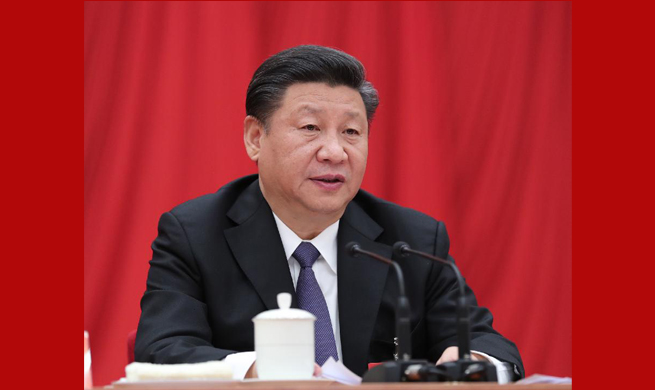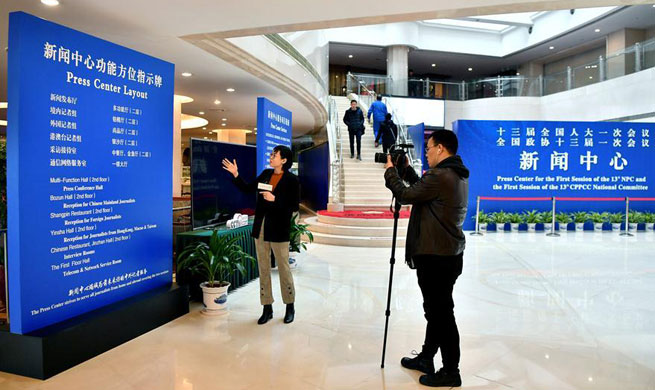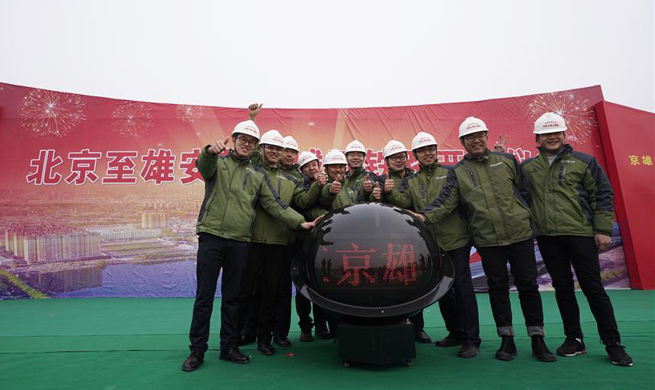WASHINGTON, Feb. 28 (Xinhua) -- Chinese researchers have developed a battery with eco-friendly organic compound electrodes that can function at minus 70 degrees Celsius, far colder than the temperature at which lithium-ion batteries lose most of their ability to conduct and store energy.
The findings, published Wednesday in the journal Joule, could aid engineers in developing technology suited to withstand the most frigid regions on Earth or the coldest reaches of outer space.
Most of previous batteries perform at only 50 percent of their optimal level when the temperature hits minus 20 degrees Celsius, and by minus 40 degrees Celsius, lithium-ion batteries only have about 12 percent of their room temperature capacity.
This can be severely limiting when it comes to operating batteries in space, where temperatures can dip to minus 157 degrees Celsius, or in parts of Canada and Russia, where temperatures can be lower than minus 50 degrees Celsius.
Chinese researchers have found a design that can function even where other batteries might fail.
Xia Yongyao, a battery researcher at Fudan University said: "It is well known that both the electrolyte (the chemical medium that carries ions between electrodes) and electrodes (the positively charged cathode and negatively charged anode) have great influence on the battery performance."
When it gets cold, the conventional electrolytes that lithium-ion batteries often use become sluggish conductors and the electrochemical reactions that occur at the interface of the electrolyte and the electrode struggle to continue.
Xia's team experimented with using an ethyl acetate-based electrolyte, which has a low freezing point that enables it to conduct a charge even at extremely low temperatures.
For the electrodes, they used two organic compounds, PTPAn cathode and PNTCDA anode. Unlike the electrodes used in lithium-ion batteries, these organic compounds don't rely on intercalation, the process of continuously integrating ions into their molecular matrix, which slows down as the temperature drops.
"Compared to the transition-metal-containing electrodes materials in conventional lithium-ion batteries, organic materials are abundant, inexpensive, and environmentally friendly," Xia said.
He estimated the price of the electrode materials at about one third of the price of electrodes in a lithium-ion battery.
However, the battery will still require some tweaking before it is ready to leave the lab, because its energy per unit mass is still low compared with commercialized lithium-ion batteries, and the assembly process needs to be further optimized.

















